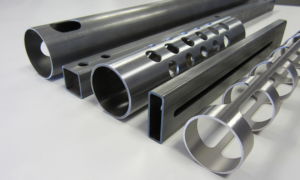
Mold can enter your home via air, clothes, shoes, pets, etc. Not only can it impact the air quality of your home but also lead to various health issues and property damage. That is why it’s essential to address the issue quickly.
However, when it comes to getting rid of mold, many people get confused between “mold removal” and “mold remediation.” While these two terms are frequently used interchangeably, they refer to different approaches for addressing mold growth.
So, here we will discuss the difference between these two terms and help you choose the best way of getting rid of mold from your home in New Jersey.
What is Mold Removal?
Mold removal typically refers to the process of eliminating visible mold growth from a surface. This method often involves physically scraping, cleaning, or using chemical treatments to kill and remove the mold spores.
Mold removal in NJ is often seen as a quick fix, designed to deal with the immediate visible effects of mold. However, mold removal is not a comprehensive solution and may not address the underlying causes of mold growth.
Limitations of Mold Removal
While mold removal may make a surface look clean, it doesn’t guarantee that the mold will not return. Without addressing the source of the moisture that encourages mold growth, the mold is likely to regrow.
It can be useful in isolated cases where the mold is localized and hasn’t spread too deeply into structures or materials.
Moreover, certain mold spores may remain in the air even after the visible mold is removed. This means that even though the area may appear clean, the mold problem may not be entirely eradicated.
This method is also often limited in scope, as it focuses only on treating the affected surfaces rather than the underlying issue.
What is Mold Remediation?
Mold remediation, on the other hand, is a more comprehensive and long-term solution. It involves not only the removal of mold but also the identification and correction of the underlying conditions that led to mold growth in the first place.
Mold remediation in NJ aims to eliminate the presence of mold and prevent future growth by addressing the source of moisture and ensuring that the affected area is properly cleaned and restored.
The Process of Mold Remediation
Mold remediation starts with a thorough inspection of the affected area. A professional mold remediation expert will identify where the mold is growing, assess the extent of the damage, and determine the moisture sources causing the mold to thrive. After that, they will implement strategies to remove the mold and stop it from returning.
The process includes the following steps:
- Containment: The area is sealed off to prevent mold spores from spreading to other parts of the home. This is essential to avoid further contamination.
- Air Filtration: Professional-grade air filtration devices, such as HEPA filters, are used to capture mold spores from the air.
- Mold Removal: Similar to mold removal, this step involves cleaning the affected surfaces. However, it goes further by ensuring all mold is completely removed, even from hidden spaces.
- Moisture Control: The root cause of mold, usually excess moisture, is identified and corrected. This may involve fixing leaks, improving ventilation, or installing a dehumidifier.
- Restoration: Once the mold is removed and the moisture issue is resolved, the area is restored. This could involve replacing materials such as drywall or insulation that were damaged beyond repair.
Advantages of Mold Remediation
Mold remediation offers several benefits over mold removal:
- Long-Term Solution: By addressing the source of moisture, remediation helps ensure that the mold problem does not return.
- Health Protection: Remediation experts use special equipment and techniques to prevent the spread of mold spores during the process, minimizing the health risks for you and your family.
- Comprehensive Approach: Remediation ensures that not just the visible mold is addressed, but also hidden mold that may be lurking in walls, ceilings, or under floors.
Which is Best for Your Home in NJ?
Deciding whether to go for mold removal or mold remediation largely depends on the severity of the mold problem and the condition of your home.
Mold Removal May Be Suitable For:
- Minor Mold Growth: If the mold is contained in a small, isolated area, such as a bathroom or a small corner of the basement, mold removal may be sufficient.
- Surface Mold: If the mold is growing on non-porous materials like tile or glass, removal can often be done effectively without significant damage.
- Short-Term Solutions: If you’re looking for a quick, temporary solution and do not anticipate mold returning, removal may be enough.
However, it is important to remember that mold removal doesn’t address the root cause, which is moisture. If mold returns, the same problem will persist unless you take steps to fix the underlying issue.
Mold Remediation Is the Best Option For:
- Extensive Mold Growth: If the mold problem is widespread or has infiltrated large portions of your home, remediation is necessary to thoroughly address the issue.
- Health Concerns: Mold can have serious health effects, especially for people with allergies or respiratory issues. Mold remediation uses specialized techniques to reduce exposure to mold spores during the process, ensuring a safer environment.
- Preventing Future Mold Growth: If your home has ongoing moisture issues, mold remediation is the only way to ensure that the mold does not return. This approach addresses the cause of the mold, not just the symptoms.
- Restoring Your Home: In cases where the mold has caused significant damage to the structure or materials in your home, remediation will not only remove the mold but also restore the affected areas to their original condition.
Conclusion
While mold removal may seem like a simpler, more affordable option, mold remediation offers a more thorough and lasting solution, especially for significant mold problems. For homes in New Jersey, where humidity and moisture issues are common, opting for mold remediation ensures that the root cause is addressed, preventing mold from coming back and protecting the health of your family.
If you suspect mold in your home, it’s essential to consult with a professional mold remediation company. They can provide a detailed inspection and help you determine the most appropriate course of action for your specific situation, ensuring your home remains safe and mold-free for the long term.






